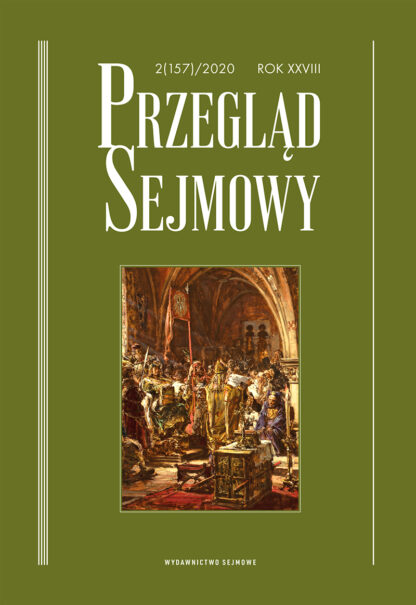Trifolium – nieformalne porozumienie senatorów koronnych z lat trzydziestych XVII w.
The Trifolium — an informal political agreement of senators of the Polish Crown in 1630s
Author(s): Janusz DorobiszSubject(s): History, Political history, Politics of History/Memory
Published by: Kancelaria Sejmu
Keywords: Trifolium — three-leaf clover; interregnum 1632; Władysław IV Vasa; he elite of senators and dignitaries;parliamentarism;
Summary/Abstract: The political significance of the Trifolium is questioned by some historians. The Trifolium — a three-leaf clover — was an informal political agreement between chancellor Jakub Zadzik, Bishop of Chełmno, hetman Stanisław Koniecpolski and Stanisław Lubomirski, voivode of Ruthenia. In the years 1631–1632, the Trifolium successfully supported the issue of emoluments for the members of the king’s family in the Polish-Lithuanian Commonwealth, but failed to reform the elections, opposed by representatives of the Grand Duchy of Lithuania. During the interregnum of 1632, the Trifolium did not allow to restrain the authority of the king and the Senate for the benefit of the chamber of deputies. The Trifolium also supported the election of Prince Władysław Vasa for the Polish king in exchange for concessions regarding the elect’s titles of the tsar and Swedish king. This allowed the conclusion of peace with Russia in 1634 and a truce with Sweden in 1635. The king, dissatisfied with the Trifolium “guardianship”, enforced Zadzik’s resignation from the Chancellery in 1635 and the Trifolium began to lose its political significance.
Journal: Przegląd Sejmowy
- Issue Year: 2020
- Issue No: 2
- Page Range: 59-80
- Page Count: 22
- Language: English, Polish

